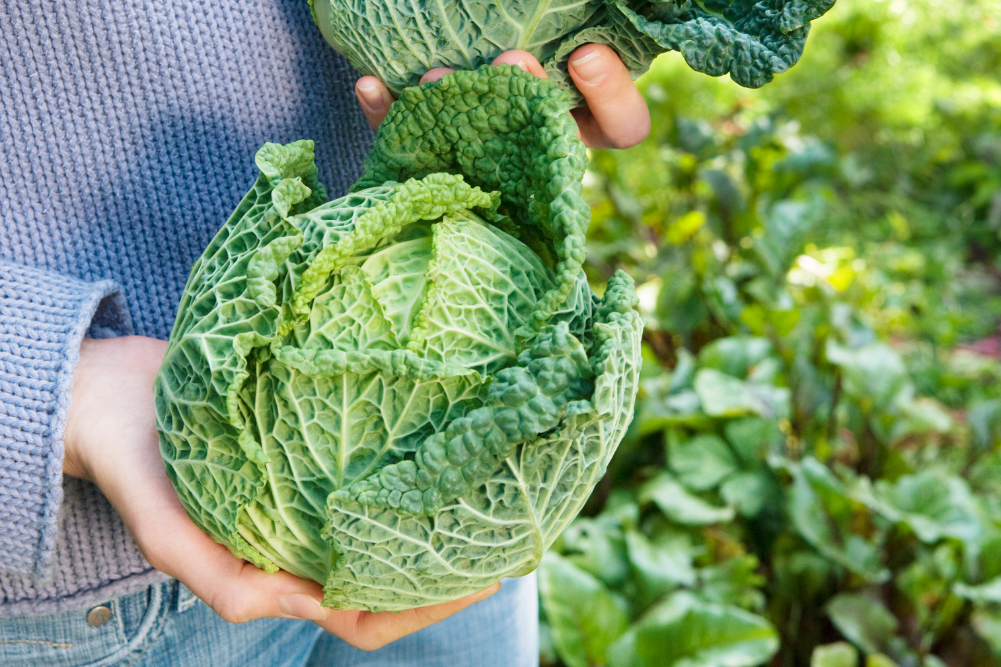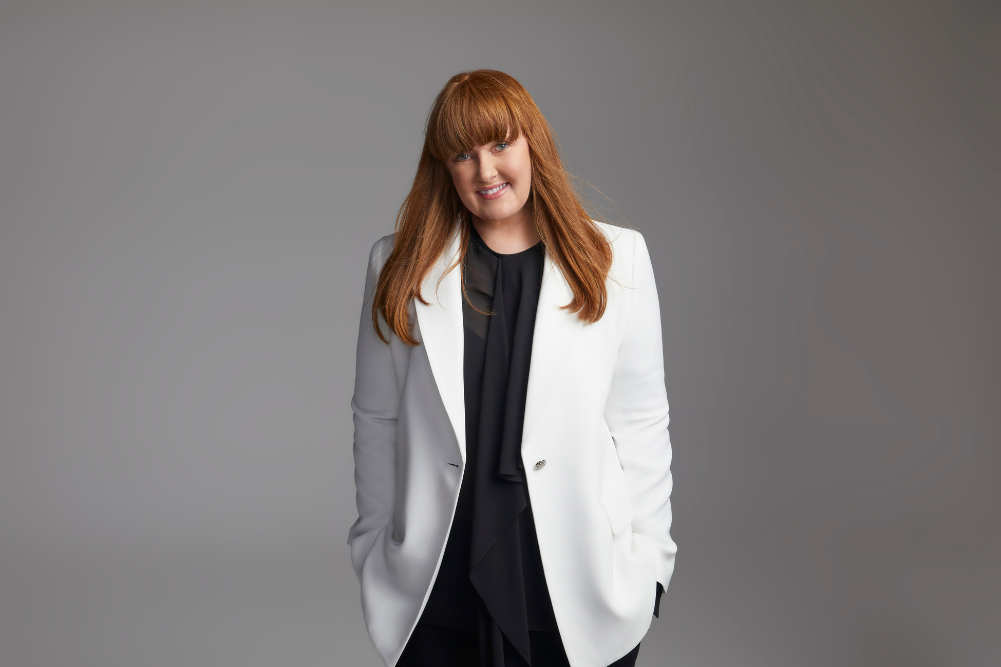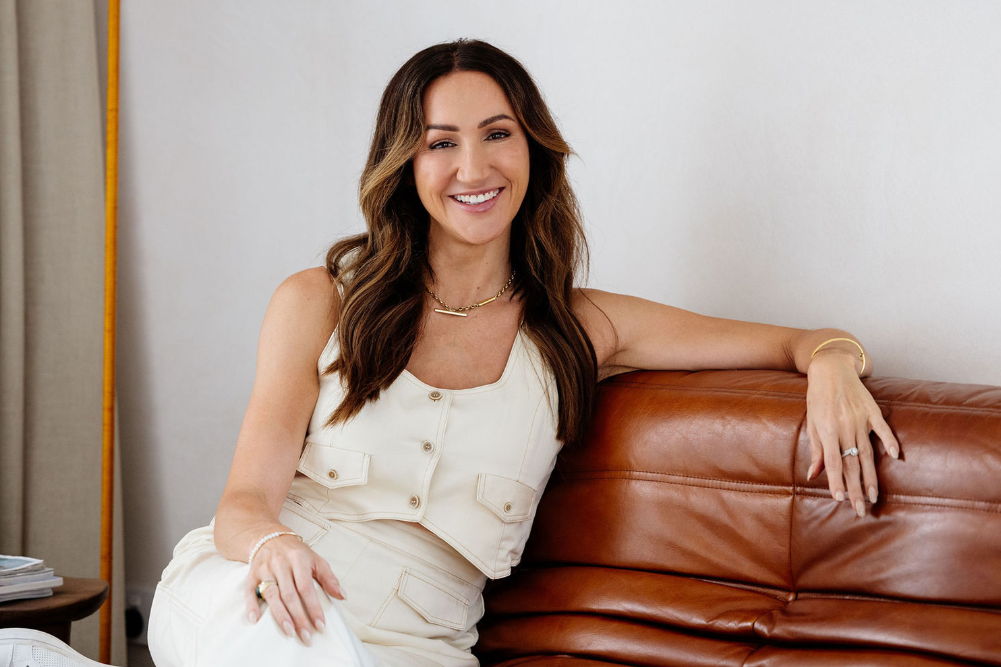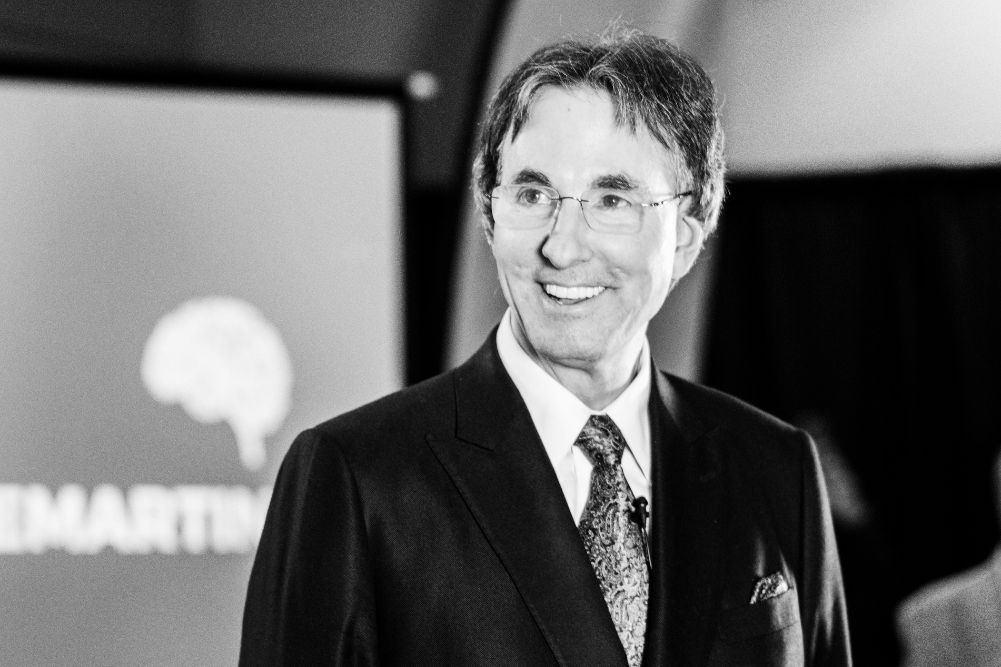Marc Cohen: wellness as medicine
Professor Marc Cohen truly embodies the best of both worlds. A registered GP with degrees in physiology and psychological medicine, he also has PhDs in Chinese medicine and biomedical engineering. As well as being an innovator, Marc is also an educator and is currently a professor in the School of Health Sciences at RMIT University where he leads an online Master of Wellness program and is a driving force behind a number of clinical trials.
Marc’s accomplishments in the field of integrated medicine are impressive. He has been influential in promoting the idea of wellness as not just a state of body or mind but a multifaceted form of holistic medicine that reaches beyond medicine into all areas of life — social, financial and educational.
Despite his many accomplishments, Marc is a humble, passionate and articulate individual who, after 30 years in the field of medicine, describes himself as “just getting started”. His interest in the concept of wellness has evolved into an accomplished career built on his desire to not only to treat illness but also to prevent it using an integrated approach and an authentic positive outlook.
The good life
Marc studied medicine at Monash University in the early 1980s where he was taught about everything from birth to death and in between, but not about what he was really interested in.
“In the first three years I learnt a lot about illness and a lot of things that could go wrong with the body but I hadn’t learnt a lot about health or wellbeing,” he says. This led him to take up physiology and psychology, studying pain from those perspectives.
“I really wanted to study pleasure but they wouldn’t let me do that,” he says. “I guess they thought it was a bit frivolous as this was in the mid-80s before positive psychology was taken seriously.”
Throughout his studies, Marc kept on coming across acupuncture being used for pain relief as well as encountering Chinese medicine, which is founded on preventative and wellness-based theories. This was more in line with what he had been seeking since first commencing his studies and inspired him to break from tradition and defer his studies in medicine so he could complete a degree in Chinese medicine.
“After studying medicine for four years I decided to take three years off and get a PhD in Chinese medicine,” Marc says. “This was probably one of the biggest decisions I have made in my life.
“Everyone at the time said I was crazy as in two years I would be a doctor and earn lots of money. Chinese medicine at the time was seen as a fringe, unscientific discipline.”
After PhD studies in Chinese medicine, Marc completed his medical degree and, shortly after graduating, participated in a health retreat in Victoria. There, another important seed was sown when he attended a workshop about the Dean Ornish lifestyle program and how it can reverse the effects of cardiovascular disease.
“At the time in the modern medical world it was standard practice to strip a vein from your leg, open up your chest and put the vein across the blockage in your chest every 10 years, yet it was considered radical to relax, exercise, eat good food and share your feelings,” says Marc. “It occurred to me that there was a lot of money in bypass surgery as an industry but there was no real industry focused on relaxing, exercising, eating good food and sharing your feelings.”
“It wasn’t until the mid-90s, when I discovered the spa and wellness industry, that I realised there was an industry outside the medical model that was about making people feel good and promoting mindfulness. That was a real eye-opener for me, but there wasn’t a lot of connection between the spa and wellness world and the medical world and that’s where I wanted to be.”
Inspired student to inspirational teacher
Marc’s interest in holistic medicine led him to create for his own students what he himself had searched for as a medical student. At Monash University in 1993, Marc developed a series of new educational programs for medical students and in doing so added a new dimension to the medical curriculum.
“I set up a Centre for Complementary Medicine within the Monash medical faculty and was very involved in integrated medicine,” says Marc. “Back then, I was considered an ‘alternative’ doctor championing ‘alternative’ medicine and ‘complementary’ therapies within a conservative medical faculty.”
Some of the electives offered at Monash University included medical acupuncture, food as medicine, humour and healing, and Aboriginal medicine and spirituality. In 2001, Marc was offered a professorial position at RMIT University to head up the Department of Complementary Medicine. He then experienced a role reversal as the “conventional” doctor heading a department that taught the “alternative” modalities of chiropractic, Chinese medicine and osteopathy.
It was at RMIT that Marc developed the online Master of Wellness program, which integrates courses from business, health and applied sciences. Since its commencement in 2008, the Master of Wellness program has become globally recognised as a way for students to study holistic thinking and critical analysis and to learn to see things from multiple perspectives. The fact that the degree is online means it is accessible to students from around the world who are seeking to become leaders in the burgeoning wellness industry.
“Compared to 10 years ago, there has been an enormous shift in the wellness industry,” says Marc. “Ten years ago, wellness degrees didn’t exist and few people were out there looking for this type of program. The power of the internet means things are accelerating and now anyone with a Bachelor degree from anywhere in the world can study wellness online at Master’s level. While the broad entry criteria make marketing the program difficult, we’ve found that if we don’t advertise, students who are already taking a leadership position and are searching for this type of program find us. It’s been really rewarding seeing the calibre of students coming through.”
A growing shift in awareness
Prevention has become a key term as healthcare professionals urge governments to improve public health. With 60 per cent of deaths globally attributed to preventable chronic diseases such as cardiovascular disease, diabetes, obesity and cancer, there is a call to concentrate on doing more than merely treating health problems or, as Marc says, “spending money on making heroic efforts toward the end of one’s life”.
“There’s been a shift in the rhetoric about medicine and what’s talked about, but it’s a huge boat to turn,” says Marc. “The medical industry is entrenched in government policies, funding, the insurance industry, hospitals and registration boards. Doctors are by far the most legislated profession. Because healthcare is so institutionalised it’s hard to move medicine 180 degrees from treating illness to prevention.”
Like many health professionals, Marc believes the medical system in Australia is unsustainable. “PricewaterhouseCooper’s Health Research Institute did a study a few years ago called HealthCast 2020: Creating a Sustainable Future, where they reported on medical and health systems around the world. They have predicted that they are all going to fall down within 15 years unless there are some dramatic changes made. We have an ageing population, increasing disease and depression, obesity — the current trends just can’t be maintained.”
Marc reasons that a level of change in government legislation is needed but there also has to be voluntary changes made by the public, a willingness in people to want to change their own lifestyles and invest in their own health and wellbeing. “The government doesn’t necessarily lead as much as it follows what people want. It has to come from a grassroots base for politicians to listen.”
The current health system model is built around fixing problems that have already emerged. Marc believes we need to transcend the medical system and adopt healthier lifestyles as individuals and as communities.
“The holistic system is really the only way to go,” he says. “We know that the burden of disease that we are experiencing is increasing and it’s way beyond our means to deal with it. We have to work out how to live ‘well’ in order to prevent lifestyle diseases.”
Consciousness for change
When we think of the term “broken heart”, we attribute it to something emotionally based, but what if a broken heart could not just mean emotional and mental anguish but cause disease and death?
“We know from literature that heart disease is the biggest killer in our society,” says Marc. “When talking about a broken heart, most people associate it with lost romance, but what the Heart Foundation found out 10 years ago is that social isolation and depression, which is research’s way of saying lack of love, is actually as big a risk factor for heart disease as smoking, high blood pressure and cholesterol. However, while you can write a prescription for pills to lower blood pressure pills or cholesterol, you can’t write a prescription to correct someone’s social situation — yet we know it’s just as important as the other major risk factors for heart disease.”
Prevention requires a state of awareness about ourselves, but inspiring someone to change unhealthy habits to prevent potential ill-health can bring up a number of challenges. “You have to treat people where they are at,” says Marc. “People often care much more about how they look than if they are going to get heart disease in 20 years’ time. If you can get people to be healthier so they will look better, this can sometimes be a powerful motivator to live a healthier lifestyle and prevent disease.
“We are all at different stages on the path to wellbeing. If people are just told to do something, they rarely follow the advice. They often have to have a direct experience of the consequences of not doing it or feel life being better when they do.
“This is where an integrated approach truly makes a difference as it identifies lifestyle as being a major component in your overall wellness. Being ‘well’ isn’t just about having a good constitution or being in a healthy weight range. Wellness is a consciousness, an alliance between the mind, body and spirit as well as a union between your internal and external worlds.”
The ecology of health
Marc’s approach to wellness also has an ecological perspective: by improving your quality of life and wellness you not only minimise your risk of disease; you also reduce your ecological footprint.
“We’re doing lots of research at the moment and the one area I am most excited about is the idea of clean living,” says Marc. His research at RMIT includes work on how unpackaged organic foods, mindfulness activities, connection with nature, physical activity, sweating and limiting broadcast media can impact on one’s health.
“These are things people can do at home yet it’s rare for people to do them,” comments Marc. “One of my mantras is to eat SLOW foods: Seasonal, Local, Organic and Whole. If we could all live on this kind of diet it would dramatically transform the health of the world.”
As to how to have the biggest health impact on people, Marc believes it comes down to creating social capital — improving social connectedness through local organic food production and urban agriculture.
“Community gardens and farmers’ markets where people come together and work together are a great way to build social capital,” says Marc. “One of the best things you can do for food security is to produce food locally. This is something that hasn’t been overt in complementary medicine.
“Most people, when they think of complementary medicine, think of it as a treatment for disease with herbs or meditation practice. Yet getting together with your neighbours and growing food is a truly holistic intervention — it gets you physically active and out in the sun so you produce vitamin D. It supports your nutrition, gives a sense of purpose and accomplishment and builds social connections across generations and cultures.”
According to Marc, one of the best things people can do for their own health is to participate in their own food production.
“Integrated medicine is not just a medicine or a tonic but a truly integrated lifestyle,” he points out. “Rather than going to the supermarket alone and purchasing foods that have been sprayed with chemicals and wrapped in plastic, people can walk into a community garden and literally ground themselves.
“We walk around in these high oxidative stress environments, while something simple — connecting with the earth in a garden — can have a huge benefit for you.”
Building bridges
Even though Marc has been making a difference in the health sector for more than 30 years, he says he has only recently realised his purpose in life is to integrate different fields by building bridges.
“It came to me just last year when I found out that the timing of my birth was exactly the midpoint of night and day, summer and winter, and at the intersection of the Baby Boomers generation and Generation X,” says Marc. “In building bridges, I’ve found my intrinsic discipline. It feels as if I’ve found myself a home and now understand my role in life. I realise I’m meant to be doing exactly what I am doing.”
In his life as an educator, researcher and medical professional, Marc continues to motivate others as well as himself with the potential for positive change.
“We really need to understand the depth of the hole we have dug ourselves into with our current lifestyles,” he says. “We are leaving this huge toxic legacy for future generations and the solutions are not always clear. Realising this, it’s easy to think it’s all beyond our control and hopeless and fall into despair.
“But I believe that by living our lives as a positive response to the current crisis we can all imbue our lives with purpose, meaning and passion. This is what keeps me motivated to pursue wellness education and research that will help me create the best life for myself, my kids and the world at large.”
• To find out more about evidence-based medicine and the science behind wellness-based therapies, go to www.spaevidence.com.
Kate McKee is a freelance writer and editor who is passionate about natural health and lifestyle. She enjoys writing for a variety of lifestyle publications on topics ranging from health and Beauty to outdoor living and sustainable garden design.







